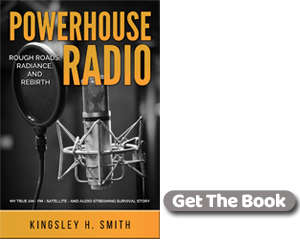Categories
-
0 Ashford and Simpson Cook up Haute Hit Cuisine
- Songs
- by Kingsley H. Smith
- 10/24/2006
Turn on your radio or favorite music device, and you'd be hard pressed not to quickly hear a hit song written by husband and wife team Nickolas Ashford and Valerie Simpson. Nick and Val have penned some of the best: Ain't No Mountain High Enough I'm Every Woman Reach Out and Touch You're All I Need to Get By California Soul The American Society of Composers, Authors, and Publishers (ASCAP) credits an amazing 240 songs to the pair. Just their Motown output would be spectacular enough. When you factor in their own self-authored hits, well this team is one-of-a-kind. What's your favorite Ashford and Simpson hit by Ashford and Simpson? It might be one of these: Is It Still Good To You Solid Found a Cure Since 1996, Nick and Val have co-owned an intimate live entertainment full service upper West Side New York City restaurant. Ashford and Simpson's Sugar Bar was originally conceived by Nickolas. Sugar Bar has had a decade of staying power. The formula: famous hosts, great food, lively performances, and frequent visits from celebrities. Ashford and Simpson. They've sung the songs. They've written the hits. They've dabbled as DJ's on New York's 98.7 Kiss FM. What's left on their plate? Serving up plenty of more surprises! Previous Post | Next Post
-
0 Five Fine Phyllis Hyman Favorites
- Songs
- by Kingsley H. Smith
- 08/29/2006
Phyllis Hyman was a remarkable talent. I was lucky enough to be the master of ceremonies for a concert she performed in Atlantic City, New Jersey, at Convention Hall on the boardwalk in the early 1980's. This shot was taken of us after the concert. The very statuesque Phyllis, resting after a dynamite show, is sitting on a small chair. She seemed pretty happy during this period of her life, as she was starting to get more well deserved recognition. The following five songs give you a nice snapshot of Phyllis Hyman the singer: Old Friend Betcha By Golly Wow Somewhere in My Lifetime You Know how to Love Me Kiss You All Over "Old Friend" is a wonderfully sung romantic salute to a special person just returning from a long absence who is the focus of some glowing unconditional love. Phyllis communicates with soul wrenching emotion inside of Thom Bell and Linda Creed's "Betcha By Golly Wow," recorded with Norman Connors. You might argue that there's too much production behind ?Somewhere in My Lifetime,? an elaborately arranged pop excursion produced by Barry Manilow. It's still a marvelous song that holds up well today. Phyllis makes it work. ?You Know how to Love Me? is a danceable classic, shared by many as a Phyllis Hyman favorite. The Exile hit "Kiss You All Over" is much sexier the way Ms. Hyman takes on the tune. I have nothing but great memories of Phyllis Hyman the person. Her strength as a singer speaks for itself. Tragically, she took her own life in 1995. Though her soul is at rest and her spirit is silenced, we have her songs to treasure forever . Previous Post | Next Post
-
0 Living in America - James Brown Style
- Songs
- by Kingsley H. Smith
- 07/04/2006
James Brown's "Living in America," was his second biggest pop hit, peaking at number 4 in March, 1986 on Billboard. This classic R&B jam marked the 98th time The Godfather of Soul appeared on the pop charts. It's a baseball, hot dogs, apple pie, and Chevrolet tribute to the USA's red, white, and blue. With topics ranging from super highways to all night diners, Soul Brother number one slam-dunks the tune and dishes out the funk. Dan Hartman and Charlie Midnight wrote the anthem, which Brown performs in the movie Rocky IV, serving as background for boxer Apollo Creed, also known as actor Carl Weathers, to strut his stuff. "Living in America" won a Grammy Award for Best Rhythm and Blues Vocal Performance, male, in 1986. Previous Post | Next Post
-
0 Marvin Gaye, Grapevine, & Friends
- Songs
- by Kingsley H. Smith
- 06/22/2006
In my article Motown Philly back again - a Soulful Tale of Two Cities, I talk about "I Heard it Through the Grapevine," a song that's had a life of it's own. Grapevine would become Marvin Gaye's biggest pop hit, a number one song on both the R&B and pop charts for seven weeks in 1968. This song entered the hot 100 at number 34 on November 23, and hit number one just three weeks later. Gladys Knight's version peaked at number two in December 1967. Motown took a chance by releasing Marvin's version less than a year later. Smokey Robinson and the Miracles were the first Motown group to record "I Heard it Through the Grapevine. The Isley Brothers put their special touch on the song after Smokey. These two classic soul versions of Grapevine are extremely rare. More "I Heard it Through the Grapevine" tidbits: The song has been on the Billboard Hot 100 list six different times King Curtis' instrumental version peaked at number 83 (1968) Creedence Clearwater Revival's interpretation went to number 43 (1976) Roger (Zapp) Troutman's version hit number 79 (1981) Buddy Miles' version (The California Raisins) topped out at 84 (1988) The Temptations, Undisputed Truth, Ike and Tina Turner, Elton John, and many others have sung songwriter Norman Whitfield and Barrett Strong's salute to underground communication. We all know the lyrics, but what was Marvin Gaye really feeling when he belted out the tune? Here's a tongue-n-cheek interpretation of "I Heard it Through the Grapevine," by satirist John Moe, who tells us what Marvin was really thinking... ---------- "Marvin Gaye explains what he heard through the grapevine" "Baby," "By now you've returned home to discover all my clothing, housewares, and other worldly possessions gone forever. And also me. But you've found this note and are reading it. You are probably surprised to find me not here (or "there" in my case, because at the moment I am not where you and the note both are). You are surprised, I bet, because you didn't think I knew about your plans to break up with me. How, you're thinking, did Marvin learn of my plans to make him blue? I'll tell you how: I talked to the grapes. This surprises you, I know, that I have such a power. And believe me, it surprised me when I first discovered it. It all started about six months ago when I bought a sack of grapes from an old man on La Cienega. I think he might have been an Indian shaman or a Spanish guy or what have you. But he said that these were magical grapes and worth a hundred dollars and I figured why would someone lie about something like that to me when I'm Marvin Gaye? So I paid him, took the grapes home, put them on the table (in that Navajo bowl from your mother) (still there) and stayed up for 36 hours waiting. And just when I was about to give up, the grapes started talking. Telling me about where they grew, how they were picked and sold and then resold a few times. It wasn't very interesting, really, because they were only two weeks old so what did they know? But still, hell, talking grapes. In the brief time I spent with them, they taught me the language of grapes, how to listen and how to talk it. A few days later I heard their tiny gasping yelps as they died of natural causes and began to rot. It was remarkable. I buried them in the front yard. You weren't there, baby. You were probably, even then, spending time with the guy you knew before. After that, every stroll through a supermarket produce section was like a damn Christmas party, thousands of little conversations everywhere. Stupid stuff, gossip mostly and primitive grape songs, but still remarkable. I would buy a few bunches and take them home, trying to entertain them as best I could with some songs and jokes until, within a few days, they all died. Before long, I had become a legendary figure in grape folklore, a demigod who could provide enlightenment in the too-brief life of a grape. Well, when you're a demigod like me you grow kind of distant from mere mortals like you. That's why I never told you about this ability and instead grabbed the fruit bowl and ran to the basement whenever you came home. Still, I thought we had a stable relationship that could withstand a few ups and downs. The grapes, on the other hand, had their doubts, constantly telling me they thought you were up to something. "No! We love each other and everything's OK!" I shouted. "Quit trying to drive us apart, grapes!" Finally, I gave them a chance to prove their assertions. I left for a day and instructed one of the grapevines (a particularly observant bunch) to report back to me. It took me by surprise, I must say, when I found out yesterday what was really happening. You plotting to let me go and take up with that other guy you knew before, never realizing that the fruit bowl was filled with dozens of spies. You even ate Diane R. Weinstein, Jamal Jackson, Evelyn Matthews, and Dave Griffin (all grapes). You could have told me yourself that you found someone else. But instead I had to hear it from my friends. Now I know you're supposed to believe half of what you see and none of what you hear. But why would the grapes lie to me? What would be in it for them? Turns out they're the only friends I got. So this is goodbye. I hope you and the guy you knew before (sorry, I can never remember his name) are happy together. I will dedicate my life to the grapes now and to promoting better understanding between our two species. I'm just about to lose my mind." Marvin ---------- In the archive of Misheard Lyrics at amiright.com, most people seem to miss the words to versions by Creedence Clearwater Revival, and this Marvin Gaye misinterpretation... Misheard Lyrics: "People say be planned for what you hear Some and nun of what you hear." Original Lyrics: "People say believe half of what you see Son, and none of what you hear." And that's the final word for now on "I Heard it Through the Grapevine." Previous Post | Next Post
-
0 R&B, Blues, Gospel, and Jazz Stars added to the National Recording Registry
- Songs
- by Kingsley H. Smith
- 06/13/2006
50 classic recordings have been selected by the Librarian of Congress to be added to the USA's National Recording Registry. The Library of Congress is the nation's oldest federal cultural institution and the world's largest library with more than 132 million items, including nearly 2.8 million sound recordings. Did you know that the Library's recorded sound section holds the largest number of radio broadcasts in the United States - more than 500,000. Recordings selected for the National Recording Registry are those that are culturally, historically, or aesthetically important, and/or inform or reflect life in the United States. Anyone can nominate a song using an online form provided by the Library. We'll give you the address for 2006 nominations after you check out the 2005 inductees. The full list of 50 performers from 2005 is quite impressive. Songs/albums are compiled in chronological order, so there's no meaning to the song number designation. Song number one is from 1903, song fifty is from 1988. Here are the folks from the world of R&B, blues, gospel, and jazz who now have their songs in the National Recording Registry. These are the official descriptions provided by the Library of Congress... 23. "Straighten up and Fly Right," Nat "King " Cole (1943) The King Cole Trio, featuring Nat "King" Cole on piano and vocals, is one of most respected small-group ensembles in jazz history. Cole's astonishing technical command of the piano, featuring a deceptively light touch, influenced many of the greatest piano virtuosos who followed him, including Erroll Garner, Oscar Peterson, and Bill Evans. His vocal solo on this recording introduced audiences to his beautifully smooth singing, immaculate diction and liquid style, launching his career as one of the most popular singers of the mid-20th century. 27. "Move on up a Little Higher," Mahalia Jackson (1948) ) This recording was gospel singer Mahalia Jackson's breakthrough disc, a best-seller that appealed equally to black and white audiences and reputedly became the best-selling gospel release to date. Jackson blends the vocal styles of blues singers, such as Bessie Smith and Ma Rainey, with the heartfelt emotion and commitment common to traditional gospel singing. She helped to make gospel music popular with racially diverse audiences of all religions. 31. "Blueberry Hill," Fats Domino (1956) Domino's relaxed-tempo, R&B version of "Blueberry Hill" was inspired by Louis Armstrong's rendition of the 1940 composition. The singer's New Orleans roots are evident in the Creole inflected cadences that add richness and depth to the performance. Recorded in Los Angeles for Imperial records, Domino insisted on performing the song despite the reservations of the producer of the session. The wisdom of this choice is borne out by the enduring association of the song with Domino, despite a number other popular renditions. 39. "Dancing in the Street," Martha and the Vandellas (1964) This rousing dance hit has been cited as one of the first examples of what would come to be known as the Motown sound. Written by Marvin Gaye, William Stevenson and Ivy Jo Hunter, the song was turned down by another Motown act before Martha and the Vandellas performed it in the Motown studios. The group, which consisted of Martha Reeves, Rosalyn Ashford, and Annette Beard, had alternated between singing backup for other Motown acts and working on their own material, but, after the success of this song, their career as a backup group ended. The African American community would come to infuse the tune with political sentiments. 40. "Live at the Regal," B.B. King (1965) Bluesman B.B. King recorded this album at the Regal Theater in Chicago in 1964. The recording showcases King's inventive and emotional guitar style, which blends Delta blues with a rhythm and blues beat, spiking the combination with his "sliding note" style. The album, one of the first of an in-concert blues performance, documents King's intimate relationship with his audience. King, who has been called "The King of the Blues" and the "best blues artist of his generation," has been a primary influence on a number of artists, including Buddy Guy, Eric Clapton and Mike Bloomfield. 41. "Are You Experienced?" Jimi Hendrix Experience (1967) This 1967 release remains not only one of the quintessential statements of psychedelic rock but also has proved to be one of the most groundbreaking guitar albums of the rock era. Hendrix's playing, while strongly rooted in the blues, also incorporated a variety of jazz influences and a uniquely personal vocabulary of emotive guitar feedback and extended solos. Including such classics as "Purple Haze," "Hey Joe," and "The Wind Cries Mary," the album featured the able rhythm section of Noel Redding on bass and Mitch Mitchell on drums. It is difficult to overstate the enormous influence that Hendrix's recordings have had on subsequent guitarists. 44. "Oh Happy Day," Edwin Hawkins Singers (1969) Regarded as the springboard for the development of contemporary gospel music, "Oh Happy Day" was based on a 19th century white hymn. Its popular music and jazz-influenced harmonies, infectious rhythms and use of instruments not often found on earlier gospel recordings have made the recording enduringly popular and influential. Originally recorded on a long-playing album, "Let Us Go into the House of the Lord," as a fund-raising effort for the Northern California State Youth Choir by director Edwin Hawkins, its compelling, exhilarating sound found its way onto radio playlists in San Francisco. Re-recorded under the name "Edwin Hawkins Singers," the song became an international crossover hit. 46. "The Revolution Will Not Be Televised," Gil Scott-Heron (1970) This poem, first released on Gil Scott-Heron's first album, "Small Talk at 125th and Lenox," served as a rallying cry to black America and proved a foreshadowing of the more politically active strains of rap music. Having published a novel before he switched to a career as a recording artist, Scott-Heron's street poetry proved uncompromising in its vision. Flutist Hubert Laws accompanied Scott-Heron's spoken and sung pieces. 49. "Songs in the Key of Life," Stevie Wonder (1976) In addition to Stevie Wonder's impeccable musicianship, this album features contributions from Nathan Watts (bass), Raymond Pounds (drums), Greg Phillinganes (keyboards), Ben Bridges and Mike Sembello (guitar) and a guest appearance by jazz pianist Herbie Hancock. To produce the album, Wonder and the group worked in the studio relentlessly for two years, occasionally logging sessions of 48 hours straight. These efforts paid off with a number of excellent jazz, blues and gospel-influenced songs, including "I Wish" and "Pastime Paradise." The album also includes the Duke Ellington tribute "Sir Duke," in which Wonder acknowledges his debt to the African American musical tradition. ---------- If you'd like to view the National Recording Registry master list, or nominate a song for the 2006 National Recording Registry, the deadline is July 6, 2006. I'm nominating a song. If it's accepted, I'll let you know! Previous Post | Next Post
-
2 Question Time about Mystery Songs
- Songs
- by Kingsley H. Smith
- 05/31/2006
We get more questions about your mystery songs than we have space to answer in our monthly Powerhouse Radio Newsletter (Oct. 2021 - links are being updated), so here's a bunch that have come in recently. From Carl: "Hello, I have been looking for a song by Michael Jackson that I cannot seem to find. I don't know the name of the song either. It was a song that Jeffrey Daniels danced to on Soul Train. All I have is the video of Jeffrey Daniels performing to it. I think part of the lyrics in the song go "Why don't you believe me when I say that I love you? I'm crazy bout you!" That's all that I could hear clearly from the video since the sound wasn't all that great. Here is the link to that video. It's actually the second part of the video where Jeffrey performs" (link removed). King: I wish they were all this easy. Carl it's "Lovely One" by The Jacksons. ---------- From Natalie: "Please help...in the late 80's I heard a song and I don't know who sang it or the name of it but I know every word to it...it goes like this.." "When I walked by I was hoping you were home, you smiled and let me in, I told you that I need a shoulder to cry on, you gave me yours again, You said its gonna be alright and turned off the lights and in the darkness you held me tight"...The Chorus goes on to say "the best of friends can be lovers after all." King: I know this one Natalie (I think). It's on the tip of my tongue (almost)! If you know the answer, please leave it in a comment so we can make Natalie happy. ---------- From Bella: "I am looking for a song by an artist named muzic? the song is about how he's still gonna love her even when her hair is gray and she puts on some weight. Please help me out!" King: I'm stumped, so If you know the answer, pop it in a comment below. ----- From Veronica: "I can't for the life of me figure out what the title of this song is or who sings it. I thought it was the Whispers. Help!? Here are some lyrics from it..." "I got a letter from someone who knows me she said that my loving was better than cookies and wine she told me she's lonely and can't live without me and she would be grateful if only i'd drop her a line don't you know that I would really like to someone tell me who I'm gonna write to cause the letter wasn't signed was it from Mary? Was it from...? Was it from...? Or maybe Sue. Was it from someone I hardly knew? Or baby maybe baby was it from you? King: Help Veronica out if you know the song by leaving the answer in a comment. Thanks! Previous Post | Next Post
-
0 What is Southern Soul? Part Two
- Songs
- by Kingsley H. Smith
- 05/18/2006
Here are highlights from a much longer article written by Michael F. Patterson: "The Problem with Southern Soul," from Frost Illustrated, Fort Wayne, Indiana. This is part two of Michael's comments... ---------- "Now we get to southern soul. Despite arguments to the contrary, that's a term I've been hearing since the 1960s. I even picked up an album from about 30 years ago recently that had the term in the liner notes. That music sold. The "southern" label didn't keep jocks or hungry customers away. In fact, it probably guided a lot of folks to other music from the region. After all, there was a belief that if it was from Memphis or Muscle Shoals and, later, Jackson, Mississippi., it had to be good stuff, because the people there were producing only the best. Southern soul was something sought by discerning listeners. In recent months, however, I've gotten calls from friends in the business who say the southern soul label is now the kiss of death. Many DJs won't play it, they say, if it's called southern soul. Some radio syndicates say flat out "no" to programming so-called (new) southern soul. Is it the label that's holding the music back? Be honest with yourself. How many of these records would even garner a second hearing when placed next to greats like Otis Redding, Johnnie Taylor, Carla Thomas, Joe Simon and others who made "southern soul" a sound of which the community could be proud? There's nothing wrong with the southern soul label. There is something wrong with a lot of the music some folks are trying to pass off today as southern soul. That's the problem." ---------- Michael makes some interesting points. This is not a new debate. I'll offer this - the phenomena of marketing music by region in the USA is pretty much long over, with one exception - hip hop. It's really hard to find regional hits any more in any genre. I don't think the discrimination against "southern soul" exists as much as the tendency of certain people not to embrace certain artists with an R&B style that is closer to the blues than to rhythm-soul. Who are these artists we are talking about? Michael mentioned a few. Others are folks like Bobby Bland, Dorothy Moore, Shirley Brown, Little Milton, and the Z. Z. Hill's of the world. "Southern soul" doesn't have a problem, it's a timeless style, part of the broader spectrum of classic R&B music. Yes, it's different from today's dominant popular style, but when did we ever have an easy time celebrating cross-cultural musical differences? What is Southern Soul Part One Previous Post | Next Post
-
0 Number One R&B Songs Rescue May Days
- Songs
- by Kingsley H. Smith
- 05/18/2006
With Summer just weeks away, May flowers are the backdrop for some wacky graduations, wonderful weddings, and outdoor activities filled with fun, sunshine, and music. Your May memories surely bring to mind a song or two that drop you into some unforgettable circumstances. Hopefully, none of the following songs remind you of uncomfortable situations. People we?re involved with sometimes have what I call ?baggage relationship songs? that upset them. The ?baggage relationship song? I relate to the most is ?Always and Forever,? as I once had a female friend who demanded that the radio be shut off ?immediately? if the Heatwave song started playing, and she?d turn it off every time! I never asked for the gory details, and she never "spilled the beans." If any of the hits below are your ?baggage relationship songs,? you?d better run for cover. The good news is that all of these 15 hits were #1 songs in the month of May. Can you guess the years? Jot down your guesses. "Boogie Fever" The Sylvers "Candy Girl" New Edition "I Got The Feelin'" James Brown "I'm Gonna Love You Just a Little More" Barry White "Jimmy Mack" Martha & The Vandellas "Never Can Say Goodbye" Jackson 5 "On My Own" Patti Labelle & Michael McDonald "Reunited" Peaches & Herb "Shining Star" Earth, Wind, & Fire "Sir Duke" Stevie Wonder "Soldier Boy" The Shirelles "The First Time Ever I Saw Your Face" Roberta Flack "There's Nothing Better Than Love" Luther Vandross "Turn Back The Hands of Time" Tyrone Davis "When A Man Loves A Woman" Percy Sledge The answers are below, but before you peak, six of these songs were #1 pop hits, all of the rest were #1 R&B hits. Which six songs were #1 pop hits? Four hints: One of the groups appeared on American Bandstand to sing "Dedicated to the One I Love," and "Will You Still Love Me Tomorrow." With the feel of the blues, one song is an all time soul classic, #1 pop and #1 R&B One mellow song stayed at #1 for six weeks The music of one artist is currently featured in a Broadway play. Here are the six #1 pop hits: "Soldier Boy" The Shirelles "When A Man Loves A Woman" Percy Sledge "The First Time Ever I Saw Your Face" Roberta Flack "Shining Star" Earth, Wind, & Fire "Boogie Fever" The Sylvers "Sir Duke" Stevie Wonder If you got three out of six right, you get an "A." Here are the years associated with our #1 songs, in the merry month of May... 1962 "Soldier Boy" The Shirelles 1966 "When A Man Loves A Woman" Percy Sledge 1967 "Jimmy Mack" Martha & The Vandellas 1968 "I Got The Feelin'" James Brown 1970 "Turn Back The Hands of Time" Tyrone Davis 1971 "Never Can Say Goodbye" Jackson 5 1972 "The First Time Ever I Saw Your Face" Roberta Flack 1973 "I'm Gonna Love You Just a Little More" Barry White 1975 "Shining Star" Earth, Wind, & Fire 1976 "Boogie Fever" The Sylvers 1977 "Sir Duke" Stevie Wonder 1979 "Reunited" Peaches & Herb 1983 "Candy Girl" New Edition 1986 "On My Own" Patti Labelle & Michael McDonald 1987 "There's Nothing Better Than Love" Luther Vandross Previous Post | Next Post
-
0 What is Southern Soul? Part One
- Songs
- by Kingsley H. Smith
- 05/12/2006
Here are highlights from a much longer article, written by Michael F. Patterson: "The Problem with Southern Soul," from Frost Illustrated, Fort Wayne, Indiana... ---------- "For some time, I've heard the debate over the use of the term "southern soul" to classify a particular genre of music. Much of the controversy around the term seems based on the belief that calling this style of music "southern" soul has hurt it with regard to airplay. This occurs particularly in the North where disk jockeys argue about the term and seem to imply that it's not their music - just the music of southern folks. Furthermore, some seem to think the regional classification of music is a relatively recent phenomenon. Truth be told, the regional classification of music is nothing new. There have long been distinctions, even if blurred, for example, between Delta blues and Chicago blues. What became known as the Chicago sound actually grew out of the work of masters from down in the Delta such as Muddy Waters, meaning it can be tricky determining what makes a certain regional style. Still, the music changed in the urban environment and evolved into something undeniably related, yet different. Jazz aficionados can speak for hours about the differences between traditional East coast jazz and West coast jazz, while country fans can tell you the difference between the classic Nashville sound and the Bakersfield sound. No one can deny the very distinct stylistic differences between southern rock, the San Francisco sound, and the blue collar rock of the Midwest. Today, any kid who knows anything about rap can tell you the difference between an East coast rapper, a West coast rapper, and the southern crunk sound. In the '60s, it definitely was easy to tell the difference between soul music from the South, the Motown sound, and the sounds of Philadelphia. Berry Gordy let it be known that what was happening in Detroit was something different from what was happening at Stax and Atlantic. The music of the famed Funk Brothers didn't sound like the classic Muscle Shoals studio wizards. And, Gamble and Huff built an empire based on setting their lushly orchestrated soul apart from everyone else. Records from all three regions burned up the charts all over the country and around the world. No company's records were limited by their widely acknowledged regional origins. Those records sold because they were good records - the best of their genre. As Duke Ellington said, there are two kinds of music, good music, and bad music. Most times, good music sells, bad music doesn't. (Now, that's another subject that gets complicated, but that's a discussion for different day.) Now we get to southern soul..." ---------- To be continued in What is Southern Soul? part two, coming next time. What is Southern Soul Part Two Previous Post | Next Post
-
2 Great Song Lyrics that Touch Your Soul
- Songs
- by Kingsley H. Smith
- 05/02/2006
Great song lyrics and great poetry have one thing in common. They both touch your soul. Listening to the radio recently, I heard a couple of masterpieces, and was struck by the power of the lyrics. Linda Creed and Michael Masser, writers of the "Greatest Love of All," communicate a message just as relevant today as when they wrote the song. As I heard the George Benson and Whitney Houston versions play back-to-back, I focused on the deep meaning of the words... I believe the children are our future Teach them well And let them lead the way Show them all the beauty They possess inside Give them a sense of pride To make it easier Let the children's laughter Remind us how we used to be Everybody's searching for a hero People need someone to look up to I never found anyone Who fulfilled my needs A lonely place to be So I learned to depend on me. I decided long ago Never to walk in anyone's shadow If I fail, if I succeed At least I lived as I believe No matter what they take from me They can't take away my dignity Because the greatest love of all Was happening to me I found the greatest love of all Inside of me The greatest love of all Is easy to achieve Learning to love yourself Is the greatest love of all I believe the children are our future Teach them well And let them lead the way Show them all the beauty They possess inside Give them a sense of pride To make it easier Let the children's laughter Remind us how we used to be I decided long ago Never to walk in anyone's shadow If I fail, if I succeed At least I lived as I believe. No matter what they take from me They can't take away my dignity Because the greatest love of all Was happening to me I found the greatest love of all Inside of me The greatest love of all Is easy to achieve Learning to love yourself Is the greatest love of all And If by chance that special place That you've been dreaming of Leads you to a lonely place Find your strength in love The "Greatest Love of All" was originally featured in the 1977 autobiographical movie about Muhammad Ali. Now, the 2nd song... Bob Dylan once called William "Smokey" Robinson the greatest living poet of our time. We know why, as the images of "I'll Try Something New," written by Smokey, offer some creative "woman pleasing fantasies," guys dream up that the ladies love to hear... I'll Try Something New wrtten by William "Smokey" Robinson I will build you a castle with a tower so high It reaches the moon I'll gather melodies from birdies that fly And compose you a tune Give you lovin' warm as Mama's oven And if that don't do Then I'll try something new I will take you away with me as far as I can To Venus or Mars There we will love with your hand in my hand You'll be queen of the stars And every day we can play on the Milky Way And if that don't do Then I'll try something new I will bring you a flower from the floor of the sea To wear in your hair I'll do anything and everything to keep you happy Girl to show you that I care I'll pretend I'm jealous of all the fellas And if that don't do Then I'll try something new I'll take the stars and count 'em and move a mountain And if that don't do I'll try something new On the moon above it's you that I love If it don't do I'm gonna try something new Oh well, if at first I don't succeed try again is what I'll do Always trying something else Always trying something that is new These lyrics should inspire writers young and old, that the "quality of the craft" of song writing still matters. Previous Post | Next Post












